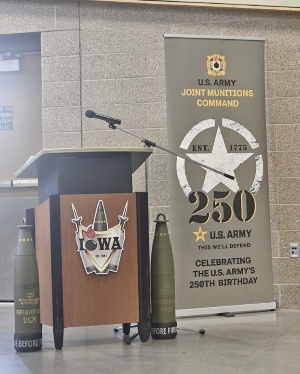The last week of my internship felt like it flew by—and it was one of the busiest weeks yet. With President Trump aiming to pass the budget reconciliation bill by the Fourth of July, our office was flooded with calls. When I arrived on Monday morning, there were lots of calls waiting for me about the Big Beautiful Bill. Along with the busy voicemail box, the office also received a wave of postcards and letters regarding similar matters. The talking point of the week was clearly the Big Beautiful Bill. What confused me, though, was how many constituents waited until just days—or even hours—before the bill would be voted on to make their voices heard. If someone is genuinely concerned about legislation, wouldn’t it make more sense to politically engage while the bill is still going through the amendment/revision process?
Throughout the internship, I noticed that many constituents who call the office do not personally explain why they oppose legislation. Instead, they read generic scripts—often word-for-word—or broad and sometimes misleading headlines. If you are wondering, yes, this occurred on a daily basis. Constituents would call, read the same script, and then hang up. This situation often makes me wonder if these constituents have read or fully understand the legislation that they are calling about. For example, in one of my previous blogs, I discussed the legislation in Section 70302 of the Big Beautiful Bill. This section, “Restriction on Enforcement,” enforces pre-existing legal safeguards to provide fairness and protection to both parties when an injunction is ordered. It was clear that many constituents did not understand the practicality and the critical need for this legislation. Instead, many cited misleading headlines and propaganda claiming that this legislation would allow the Trump administration to defy or ignore court orders. I believe that this is a prime example for why it is necessary to dig deeper than the headlines. If one had concerns about legislation, I would advise them to conduct research and take the time to read through the bill itself to gain a deeper understanding of its purpose and meaning.
To be clear, Senator Grassley takes every comment seriously, and constituent input is always logged and reviewed. With that being said, I do understand how it may seem difficult to believe that the Senator hears your voice. In my opinion, if someone wants their voice to stand out, personal and educated messages are far more powerful than repeating a script off of “5 Calls.” In fact, if I were giving advice on how to influence your representative, I’d say: don’t act like a number or statistic if you don’t want to be treated like one. If you want your voice to be heard, try not to blend in with the noise. Real voices carry more meaning and weight than repeated lines.
As if the week was not already busy enough, my supervisor and I attended a couple events. On Monday, we attended a nonprofit legislative roundtable event at the River Bend Food Bank. The attendance at this event was primarily composed of various not-for-profits and other local political representatives. From reporters to news coverage, the media presence at this event was difficult to miss. There were four featured speakers on the panel: Chris Ford (President and CEO of the River Bend Food Bank), Tom Bowman (CEO, Community Health Care, Inc), Rev. Dr. Dwight Ford (Executive Director, Project NOW), and Ashley Velez (CEO, Humility Homes & Services). These speakers discussed the local-level impacts that the Big Beautiful Bill would have on the Quad City Area.

Photo of the Food Bank where the Legislative Roundtable was held
On Wednesday, I had the opportunity to join my supervisor in attendance for a change of command ceremony at the Iowa Army Ammunition Plant in Middletown, Iowa. Here, I was able to witness an invocation, flower presentation, and the change of command from Lieutenant Colonel John D. Dunlapp to Lieutenant Colonel Daniel V. Nosse. I had the honor to meet both of these men, as well as the other attendees present that day. One part of the ceremony that really stood out to me was when the families of these two Lieutenant Colonels were recognized and honored. Each family received different flowers with unique and special meanings behind them. I particularly enjoyed this part of the ceremony, as I believe it demonstrates the hard work and commitment that these families have given to our nation. It is important that we not only recognize the brave individuals who serve our country, but also their greatest supporters who pray everyday for their safe return home.

Photo of the Change of Command Ceremony in Middletown, Iowa
Upon conclusion of this internship, I can confidently say that I have learned and experienced more than I had originally anticipated. When I started my internship here, I thought that I would be spending more time at the printer than desirable. However, that could not have been further from the truth. After six weeks in the Davenport office, I have learned how to communicate with constituents (online and in-person), research and highlight important and relevant news clips for the Senator, log constituents’ opinions and comments, research and understand legislation, and so much more. Additionally, I spent a considerable amount of time outside of the office at events around the state. I attended various military and Army events, as well as legislative panels and community board meetings. On top of all of that, I learned how our office works with numerous federal agencies to assist constituents with any potential issues. Needless to say, my supervisor always had a task for me to complete, and I am extremely grateful for this opportunity. If I had to pick one word to explain my internship experience, it would be representation. I am leaving this internship with a completely novel understanding of the weight and responsibility that this word carries. I am grateful for the courageous, bold, and intelligent people who represent Iowans across the state, and I will never take their hard work for granted. If you have a moment, I encourage you to call your local or state representative—not to ask for anything, but to simply thank them. In my opinion, they don’t hear it nearly enough.